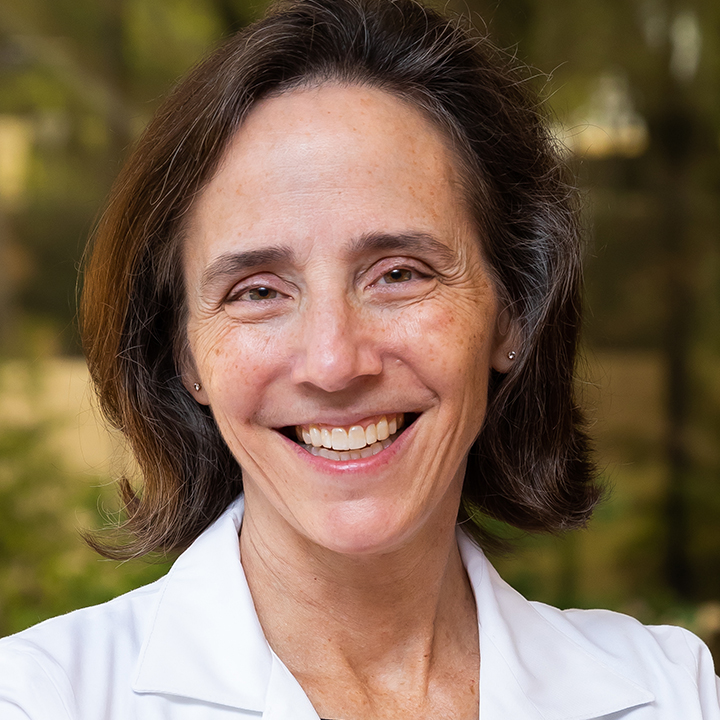Catherine Spong, M.D.
- Professor & Chair, Obstetrics and Gynecology
- Chief, Division of Maternal-Fetal Medicine
- Paul C. MacDonald Distinguished Chair in Obstetrics and Gynecology

“Family first, then accomplish the impossible.”
Contributions to STEMM
Dr. Spong is a physician-scientist and Chair of the Department in Obstetrics and Gynecology at UT Southwestern. She is a consummate advocate for faculty, trainees, and patients in her position, where she fulfills a host of responsibilities. “I have many roles – physician, clinician, researcher, writer, and educator,” Dr. Spong said. “I am a high-risk pregnancy doctor, also known as maternal-fetal medicine, meaning I care for pregnant women who have medical (hypertension, diabetes), obstetric (twins, placenta previa), or fetal (heart defect, chromosome problems) complications.”
Dr. Spong is the research mentor for many clinician scientists and is passionate about fostering their career development to improve evidence-based clinical care. Prior to joining the faculty in 2018, Dr. Spong served in many capacities at the National Institutes of Health (NIH), including as the National Institute of Child Health and Human Development’s Acting Director and Deputy Director.
Early Influences
Much of Dr. Spong’s early exposure to science came from her family and close circle of friends. She notes her parents as STEMM mentors, her mother as a biologist and her father as an engineer.
“Although no physicians were in my family, I was drawn to medicine as a way to help people, figure out problems, make a difference, and find solutions through research.”
“I also found biology and chemistry fascinating.” By high school, “my father knew I was destined for medicine based on my dissections in Advanced Biology. Then I was fortunate to work with an amazing physician-scientist, Dr. Esther Sternberg, as a senior in high school on my science project.”
Advice to the Next Generation
Persistence is a trait that Dr. Spong recommends women in STEMM develop early. “Being interested in solving problems is important, but persistence is key,” she said. “Rarely does an experiment work out perfectly, but if you are willing to think about what you found, noodle through possible reasons for the finding, and then persist in working it through, you can move mountains.”
Overcoming Challenges
Dr. Spong overcame a major setback early in her career. “As I began my fellowship, there was major drama in the department with a withdrawal of a program where I had planned to do my research,” she said. Ultimately, this challenge “led to opportunities to collaborate with a dedicated group of people eager to prove their worth, and for me to be able to intellectually make major advances."
"There is always an opportunity when crisis occurs; it is waiting to be found. Look and find it, I promise it is there.”
The experience taught her that “the only constant in life is change, and yet change is something most are uncomfortable with. Every career advance is associated with change, which includes barriers and setbacks.”
The UT Southwestern Difference
Looking back on her distinguished career, Dr. Spong poses one question as to why she chose UT Southwestern. “As I looked for a new opportunity after a 23-year career at the National Institutes of Health, as an obstetrician, investigator, and educator, where else, other than UT Southwestern would be able to provide me the excellence in clinical practice, research, and education?” Additionally, she commends the camaraderie with “my colleagues in the Department and across the University,” who are each “inquisitive, dedicated, thoughtful, and devoted to the patient and to our mission."
View Academic Profile"I love what I do making connections, helping faculty flourish, and helping them make their dreams a reality.”